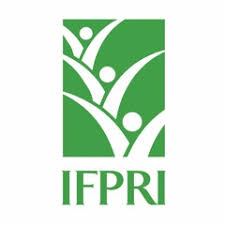[swpm_protected for=”5-6-7″]
Experimental evaluation of the economic impacts of capital injections to village savings and loans associations
Baseline Survey
Background
IFPRI is conducting a randomized controlled trial to assess the impact of capital injections into village savings and loans associations (VSLAs) in rural Malawi. The research project is funded by the USAID and the intervention is implemented by the Women’s Legal Resources Centre (WOLREC), a Malawi-based NGO, in collaboration with Palladium International.
The collaborator will partner with IFPRI to lead the baseline household survey for this study. The survey will be conducted in 150 GVHs in Malawi’s Central and Northern regions. In each GVH, three villages will be randomly selected to be included in the study, amounting to a total of 450 villages. A full household listing will be conducted in the 450 villages, categorizing households into VSLA and non-VSLA households. In each GVH, the research team will use the listing data to draw a random sample of 15 VSLA and six non-VSLA households, resulting in a total sample size of 3,150 households (=150*15+150*6). Each household interview will take up to two and a half hours to complete and include interviews with multiple members of a sampled household. The baseline survey training, fieldwork, and reporting will take place from September to October 2024. Upon successful completion of the baseline survey, the collaborator may be invited to conduct monthly phone surveys with a sub-set of households as well as the endline survey scheduled for 2026.
Activities
- Translation of questionnaire into Chichewa
- Assist in submission of study protocol to a local IRB
- Develop a CAPI program for the questionnaires in SurveyCTO based on the draft versions of these questionnaires in Word;
- Procure all supplies for data collection including tablets for administering the survey
- Conduct preparatory work including:
o Selection and training all field staff
o Pilot testing the listing and household questionnaires
o Liaising with program staff and local officials on community entry and to identify sampled households
- Take primary responsibility for conducting training and fieldwork. The fieldwork includes both listing and a household survey. Responses during the survey interviews will be recorded by the field team using tablet computers on a program written using SurveyCTO software.
- Develop and implement a system for stratified sampling, based on the responses recorded in the listing questionnaire.
- Develop and implement a system for data quality checks, corrections and callbacks to be implemented during the survey fieldwork. Coordinate with the IFPRI team to run data quality checks as the data are collected. Contact respondents again to fix any missing or erroneous data.
- Develop a protocol for data capture to assure that data can be downloaded to a project Dropbox folder at least every other day; delivery of the data collected and final field report.
Qualifications and Selection Criteria:
The survey firm must have the following capacity and evidence of work:
- At least 3 years of implementing nationwide or large-scale rural household surveys
- Evidence of capacity and delivery of quality output (based on feedback from past survey implementers and documentation from the firm)
- Pool of trained and experienced enumerators and supervisors for surveys in the northern, central, and southern regions
- Proven management of enumerators and supervisors
- Tablet-based programming and interviewing
- Data management
- Data quality check system
- Good supervision, communication, and feedback system among the survey teams
- Sufficient protocols for ethical and safe data collection
- Timely delivery of outputs
We will select the survey firm with the strongest capacity and probability of quality output delivery and that can deliver within a competitive budget.
Duration of work
September 1, 2024 to November 15, 2024
To apply please provide a detailed budget and the CV of the person who will act as the survey lead.
[/swpm_protected]
